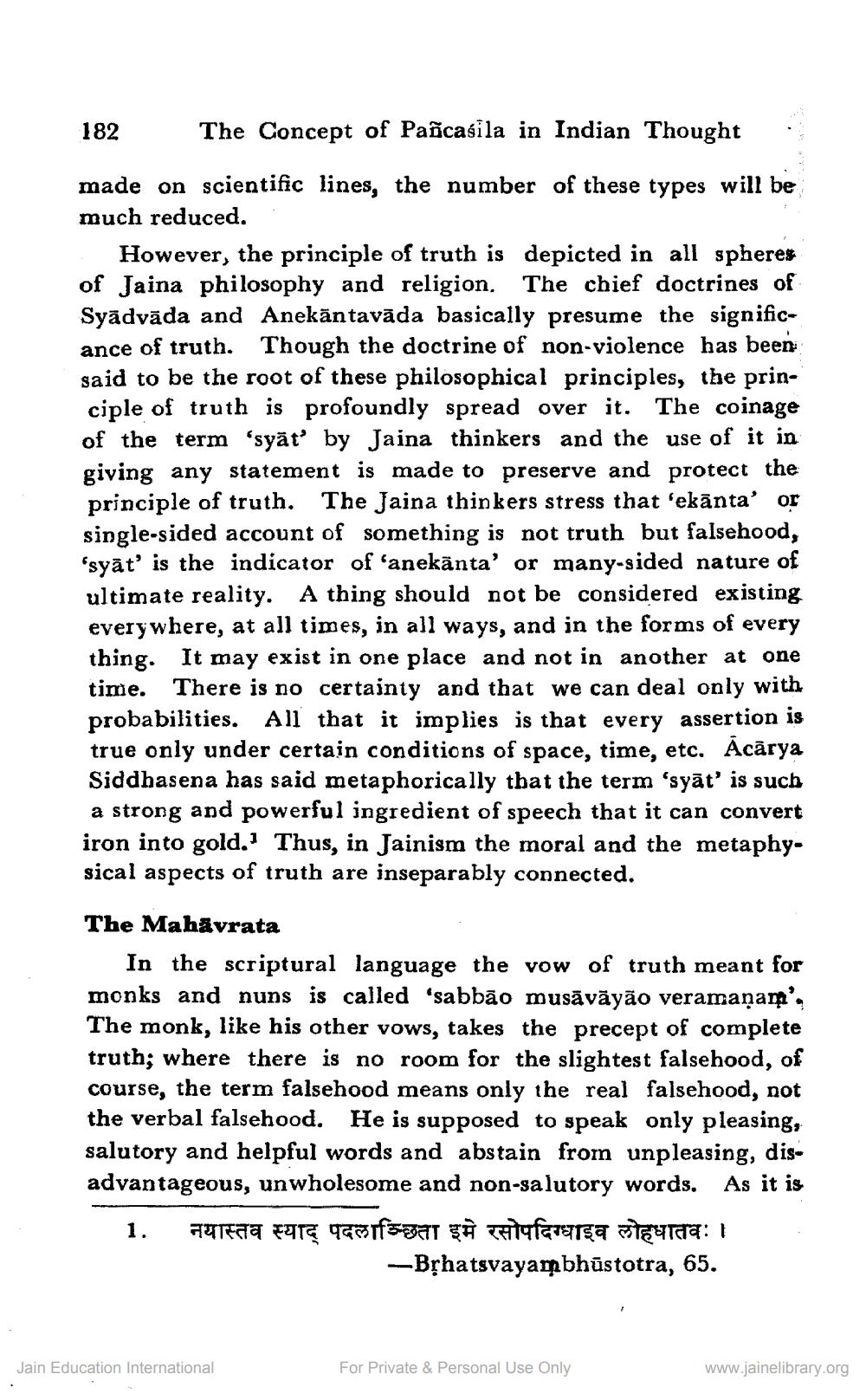________________
The Concept of Pancasila in Indian Thought
made on scientific lines, the number of these types will be much reduced.
182
However, the principle of truth is depicted in all spheres of Jaina philosophy and religion. The chief doctrines of Syādvāda and Anekāntavāda basically presume the significance of truth. Though the doctrine of non-violence has been said to be the root of these philosophical principles, the principle of truth is profoundly spread over it. The coinage of the term 'syat' by Jaina thinkers and the use of it in giving any statement is made to preserve and protect the principle of truth. The Jaina thinkers stress that 'ekanta' or single-sided account of something is not truth but falsehood, 'syat' is the indicator of 'anekanta' or many-sided nature of ultimate reality. A thing should not be considered existing everywhere, at all times, in all ways, and in the forms of every thing. It may exist in one place and not in another at one time. There is no certainty and that we can deal only with probabilities. All that it implies is that every assertion is true only under certain conditions of space, time, etc. Acārya Siddhasena has said metaphorically that the term 'syāt' is such a strong and powerful ingredient of speech that it can convert iron into gold.' Thus, in Jainism the moral and the metaphysical aspects of truth are inseparably connected.
The Mahāvrata
In the scriptural language the vow of truth meant for monks and nuns is called 'sabbão musāvāyão veramaṇam', The monk, like his other vows, takes the precept of complete truth; where there is no room for the slightest falsehood, of course, the term falsehood means only the real falsehood, not the verbal falsehood. He is supposed to speak only pleasing, salutory and helpful words and abstain from unpleasing, disadvantageous, unwholesome and non-salutory words. As it is
1. नयास्तव स्याद् पदलाञ्छिता इमे रसोपदिग्धाइव लोहधातवः ।
-Bṛhatsvayambhūstotra, 65.
Jain Education International
For Private & Personal Use Only
www.jainelibrary.org




